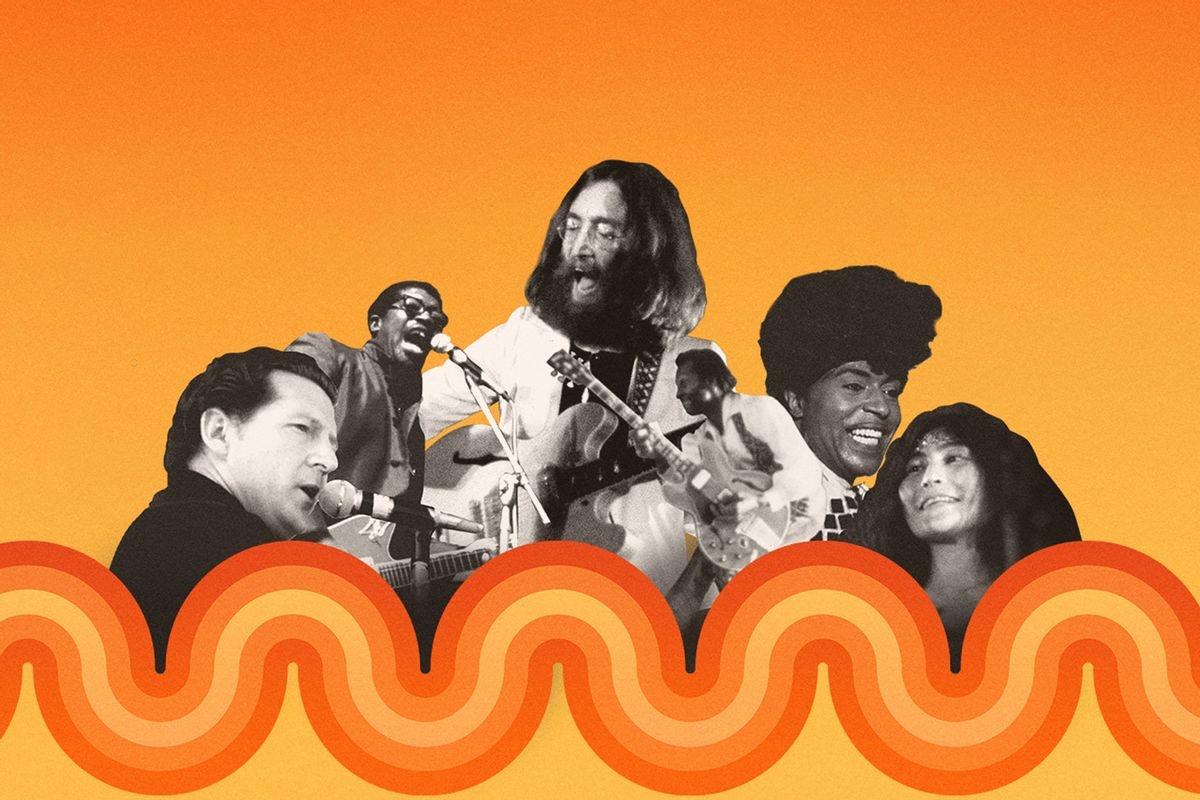Ron Chapman’s "Revival 69: The Concert That Rocked the World" memorializes one of rock ‘n’ roll’s strangest, albeit highly consequential festivals. Two years after Monterey and smackdab in the middle of the Woodstock triumph and Altamont debacle, respectively, Toronto’s Rock ’n’ Roll Revival featured a hodgepodge of old and new acts, ranging from Chuck Berry, Little Richard and Jerry Lee Lewis to the Doors, Chicago and Alice Cooper. Even more significantly, the festival featured John Lennon and Yoko Ono’s Plastic Ono Band debut scant days before he would privately announce the Beatles’ disbandment.
Originally filmed by famed documentarian D.A. Pennebaker, the footage at the heart of "Revival 69" offers a spectacular window into the look and feel of the festival, which was held in Toronto’s Varsity Stadium that September before a capacity crowd of more than 20,000 patrons. To his great credit, Chapman brings the event vividly to life, tracing the story of John Brower, a fledgling concert promoter, who pulled off the Toronto festival against incredible odds.
In addition to a bevy of previously unseen footage, "Revival 69" is chockful of interviews from the likes of Cooper, the Doors’ Robby Krieger, Chicago’s Danny Seraphine and the Plastic Ono Band’s Klaus Voormann and Alan White. In its finest moments, Chapman’s documentary portrays rock ‘n’ roll on the precipice of a vital crossroads, a world in which the genre’s pioneers were giving way to a new age of superstardom and innovation.
In many ways, Lennon’s story exists at the heart of that transformative moment. Having led the Beatles on an unparalleled campaign across the 1960s, he was eager to begin establishing his identity outside of the Fabs. By the time that Brower secured John and Yoko’s participation in the event, he had overcome a series of obstacles, including a potentially deadly entanglement with a biker gang and flagging ticket sales.
The announcement of the Plastic Ono Band’s appearance at the top of the bill escalated the festival’s profile in the nick of time, although for Lennon it proved to be a breakneck experience. Hastily assembling a band that included Voormann on bass and White on drums, Lennon rounded out the Plastic Ono Band’s personnel with Eric Clapton on lead guitar. Having never performed together before, the group rehearsed midflight in the galley of their Boeing 707 — without the benefit of amplification, no less.
For Brower, as Chapman’s exquisite documentary reveals, the “Hail Mary pass” of inviting Lennon to participate in the festival made all of the difference. As for Lennon, the Plastic Ono Band’s Toronto debut afforded him with the confidence to announce that he was leaving the Beatles soon after he returned to London. Yes, the Beatles were over, but a new era was already in its infancy.



Shares